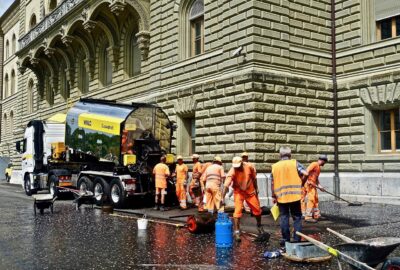While every furnace operates with some degree of noise level — irregular furnace sounds indicate something is wrong with the unit. These noises can range from simple inconveniences to more serious issues that could cause costly damage if left unaddressed.
Understanding what these noises signify and taking steps to address them can help safeguard the long-term viability of your furnace. This guide is intended to assist in diagnosing and addressing these noises to keep them running optimally and ensure a comfortable atmosphere within your home.
Getting professional help is crucial to prevent any potential safety issues caused by a damaged furnace. Check out IMS Heating & Air for expert assistance – https://imsheatingandair.com/furnace-repair-windsor/.
Whistling noises
Whistling noises emanating from your furnace could indicate a range of issues. Most commonly, they signify an airflow problem due to a dirty or clogged filter, which constricts the passage of air, causing the furnace to whistle. It could also be caused by gaps or cracks in the ductwork. A less common but more serious cause might be a malfunctioning gas valve.
Resolving the issue begins with identifying the cause. If the whistling is due to a dirty filter, replace it with a new one — this is a simple task that you can do yourself. If the filter is clean and correctly installed, but the noise persists, the problem could lie with your ductwork. Inspect the ducts for any signs of damage or gaps that could be causing a whisper.
If you’re unable to find any, or if the whistling continues after sealing any leaks, the issue might be a faulty gas valve, which requires professional attention. In such cases, do not attempt to fix it yourself, as working with gas appliances can be dangerous.
Rattling and banging noises
Rattling noises coming from your furnace can be difficult to identify. Rattling could be the result of anything from loose panels and doors to improper fan belt installation, so turning off your furnace and checking all panels and doors for loose screws may help solve this issue.
If it doesn’t help, the noise could signal that your heat exchanger or gas burners have cracked, requiring immediate professional intervention. It may also indicate air duct leaks due to damaged ductwork, closed vents or dirty filters restricting airflow into your home.
Banging or booming sounds from your furnace should also be cause for alarm, particularly if they arise when starting up your furnace or shortly thereafter. These sounds likely indicate that its heat exchanger has cracked, which could put you and the health of those around you at risk and lead to costly repairs. Immediate attention from a professional is required.
Squealing and scraping sounds
Scraping sounds emanating from your furnace are typically a cause for concern, often indicating that metal is grinding against metal. This is usually a sign that the blower wheel in your furnace might be damaged or loose.
If the wheel is just loose, tightening it might resolve the problem. However, if the wheel is broken or damaged, it will need to be replaced. Both scenarios require immediate attention, as ignoring this issue could lead to further damage to your furnace.
On the other hand, if the scraping sounds are accompanied by a squealing noise, it could signify a motor mount issue, suggesting that the entire blower assembly has come loose. In this case, it’s highly recommended to shut off your furnace and call in a professional for repair.
Conclusion – furnace making unusual noise
Unusual noises coming from your furnace should never be ignored, as they could signal issues that could result in more extensive damage if left unaddressed. Simple steps such as changing out a dirty filter or tightening loose panels may help alleviate some noise issues; for more complex issues it may require professional assistance.









